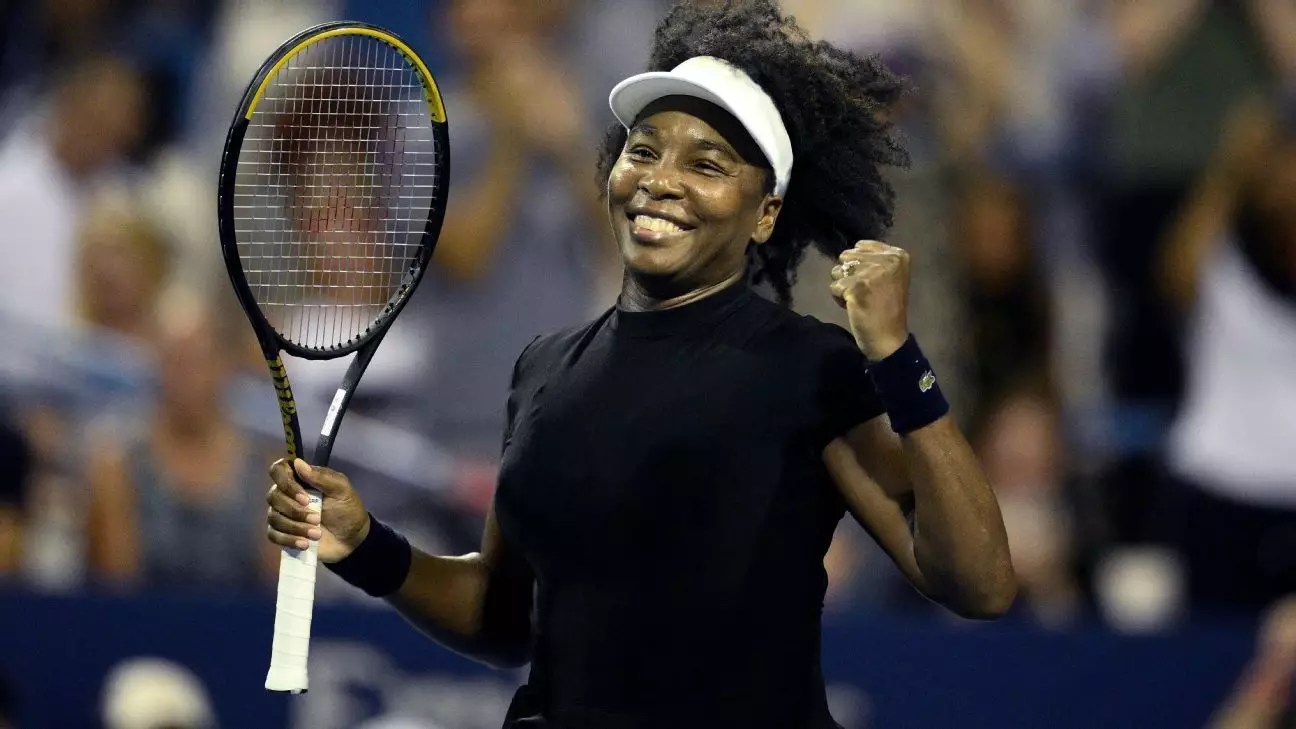In a sport often obsessed with youth and fleeting appearances, Venus Williams shattered expectations by claiming her first singles victory in nearly two years at the age of 45. This achievement is not just a personal milestone for her but a stark reminder that athletic excellence and competitiveness are not solely confined to the young. While most players her age would be contemplating retirement or battling injuries, Williams demonstrated formidable resilience, defying the stereotypes that age inevitably tames talent and passion. Her victory at the DC Open stands as an inspiring testimony to perseverance, mental strength, and the enduring power of sports to challenge societal norms about aging.
Such an accomplishment is hardly trivial. To win a professional tennis match at 45 requires a confluence of skill, experience, and mental toughness that many younger players are yet to develop. Williams’s performance, replete with her trademark powerful serves and aggressive groundstrokes, showcased a player still capable of competing at the highest level. This isn’t merely a sentimental comeback; it’s a calculated reminder that the decline associated with aging is often exaggerated, especially when driven by dedication, proper health management, and a love for the game. Williams’s resurgence fuels a broader debate about how we define athletic prime and the potential for older athletes to challenge that perception.
Challenging Societal Expectations of Aging and Gender
Williams’s story is more than just a remarkable sports feat; it is a powerful statement on societal expectations—particularly for women who continue to excel well beyond the conventional ‘prime’ years. In a culture that often sidelines women over a certain age, her victory prompts critical questions about ageism and gender norms. Williams’s ability to perform at this level underscores the importance of shifting perceptions, recognizing that experience and resilience can be as formidable as youthful vigor.
Moreover, her return from medical setbacks—specifically a surgical procedure for uterine fibroids—highlights issues of women’s health that are frequently stigmatized or overlooked. In sports and beyond, women’s health concerns are often dismissed or not given enough public attention, and Williams’s visibility shines a light on the importance of health advocacy and access to care. Her perseverance through health struggles and her desire to compete at the highest levels emphasize the need for society to challenge notions that aging and health issues are insurmountable barriers to achievement.
The Significance of Support and Representation
The roaring crowd in Washington was more than a backdrop; it embodied the cultural shift that celebrates longevity and resilience in sports. Williams’s historic win was buoyed by passionate spectators who clearly saw her as more than a tennis player—they recognized her as a symbol of perseverance and the unyielding human spirit. Her ability to motivate fans and inspire countless individuals, particularly women and older adults, is a testament to her influence beyond the court.
In a broader context, her presence and success challenge the narrow standards of beauty, strength, and athleticism often reinforced by media narratives. Williams’s performance blurs age-related stereotypes, encouraging society to value dedication and experience rather than dismissing those who continue to push boundaries. It also raises questions about how sports organizations and cultural institutions can better support athletes—regardless of age—to ensure that champions like Williams are celebrated for their skill and resilience rather than their age.
Why It Matters in the Fight for a Just and Inclusive Society
Ultimately, Venus Williams’s return to the winner’s circle isn’t just about tennis—it’s an indictment of ageist and discriminatory tendencies embedded in our society. Her resilience proves that with proper support, health, and determination, individuals can defy societal expectations, redefine norms, and inspire genuine change. Her story advocates for a more inclusive view—one that recognizes and nurtures talent at every stage of life.
In an era where youth often dominates headlines, Williams’s recent victory is a breath of fresh air. It challenges us to reconsider our biases about aging, gender, and athleticism. Her performance is a testament to the importance of supporting a society that values diversity—of age, experience, and skill—creating a space where individuals are appreciated for their enduring talents rather than discarded due to outdated notions of what is ‘possible’.

